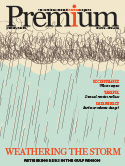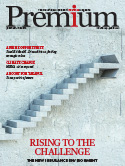Life insurers support green bonds

A group of Japanese life insurance companies invested in two 15-year green bonds issued by the World Bank to support the financing of climate projects and the critical role the multilateral development banks play in providing climate finance in developing countries as momentum builds for the United Nations Climate Change Conference, known as COP 26, in November 2021.
This is the first time Japanese life insurance companies have come together to invest in bonds to show their collective support for the urgency of climate action. The Dai-ichi Life Insurance Company, Fukoku Mutual Life Insurance Company, Nippon Life Insurance Company, and Sumitomo Life Insurance Company participated in the transaction.
Jingdong Hua, vice president and treasurer, World Bank, said, “The World Bank is the largest single source of climate finance to developing countries. Private investors play a critical role in channeling needed resources to World Bank member countries as they work to reduce emissions and build greener and more resilient communities and economies. We are grateful to Japanese life insurance companies for coming together to show their support for climate finance in developing countries and thank them for their investment.”
The World Bank has issued over 185 green bonds in 23 currencies, totaling nearly USD 16 billion equivalent since its inaugural issue in 2008. World Bank Green Bonds support the financing of projects in member countries that meet specific criteria for low carbon and climate resilient growth, seeking to mitigate climate change or help affected people adapt to it.
The types of eligible projects include renewable energy installations, energy efficiency projects, and new technologies in waste management and agriculture that reduce greenhouse gas emissions and help finance the transition to a low carbon economy. They also support the financing of forest and watershed management and infrastructure projects that prevent climate-related flood damage and build climate resilience.





































